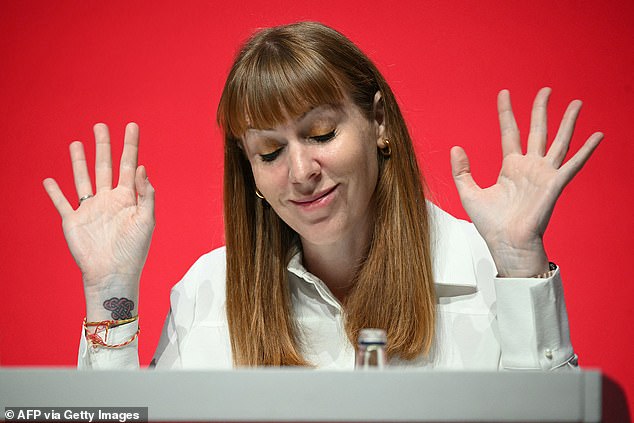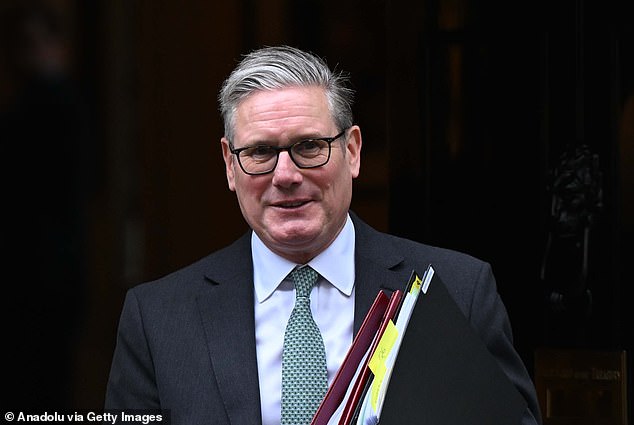Middle England faces council tax hikes of up to £250 under Angela Rayner‘s controversial plan to create ‘mega councils’.
Research has found residents of local authorities with populations above half a million pay hundreds of pounds more a year for services.
Analysis by the District Councils’ Network shows that the average Band D bill in a council area with more than 500,000 people stands at £2,009, while those with smaller populations pay £1,759.
Last year, the Ministry of Housing, Communities and Local Government (MHCLG), run by Ms Rayner until she quit after underpaying stamp duty on her new seaside home, proposed ‘simpler structures’ for local government.
All town halls in the 21 two-tier areas – where services are split between county councils and districts – that cover much of southern England and the Midlands were ordered to come up with ideas to merge into unitary authorities.
They were told the new organisations, dubbed mega councils by critics, should cover populations of 500,000 or more – although smaller alternatives have been suggested.
It is understood the department remains committed to the reorganisation despite Ms Rayner’s departure which means much of rural and suburban England could see tax hikes of up to £250.
The likely impact of the merger risks a double whammy for residents of the shires, following separate moves by the department to funnel funding away from the countryside to Labour-voting cities, which leaders say will force rural councils to put up bills by the maximum amount allowed.

Middle England is facing council tax hikes of up to £250 under a plan put forward by Angela Rayner (above) when she ran the Ministry of Housing, Communities and Local Government

Former Tory home secretary Sir James Cleverly (above) said families are being landed with higher bills despite there being ‘no evidence this approach will deliver better services’
And it comes after almost all town halls raised council tax by the maximum 5 per cent this year, despite Sir Keir Starmer’s pledge in 2023 to freeze it, taking the average bill to £2,280.
Last night Sam Chapman-Allen, chairman of the District Councils’ Network, said: ‘We’re told that reorganisation should cut costs, but the evidence shows huge unitary councils, like those the Government envisages, land their residents with bigger council tax bills.’
Sir James Cleverly, the Tories’ local government spokesman, added: ‘Labour always thinks bigger government means better government.
‘In reality, it means top-down restructuring that ignores local opinion, tramples over geography and identity, and lands families with higher bills, while there has been no evidence this approach will deliver better services.’
An MHCLG spokesman said: ‘Councils decide their own tax levels every year with a referendum threshold for proposed increases in place to protect taxpayers. The research cited has clearly misunderstood this basic concept.’

Almost all town halls raised council tax by the maximum 5 per cent this year, despite a pledge by Sir Keir Starmer (above) in 2023 to freeze it
Radical Labour policies to make it almost £1,000 more expensive to hire a single worker, analysis finds
Labour’s ‘anti-business’ policies will make it almost £1,000 more expensive to hire a single worker, analysis has found.
As Ms Rayner’s radical Employment Rights Bill returns to the Commons today, figures by the Tories suggest the measures in the legislation will add £154 per employee per year.












